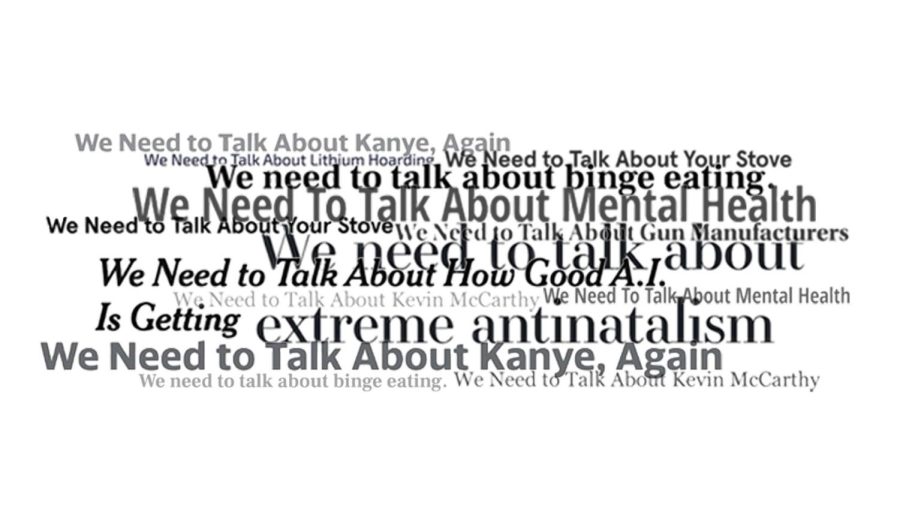As a news junkie, I read headlines every single day. Condensing the most pressing news into just a handful of words is an art, requiring creativity, intent and nuance. A headline can spread a story across the globe or bury it deep into an algorithmic abyss.
This is why I hate “we need to talk about” headlines. Everyone from The New York Times to Buzzfeed has used this journalistic guilt trip, hoping they’ll lure in audiences with authoritative language alone. But like all creative cultural trends, parody articles took the headline over, perpetuating the internet’s trademark blend of irony and sincerity.
It would be easy to call these headlines cliché — which they are — and end the discussion. But it’s so much more than that. It’s an unoriginal, preachy idea that ultimately betrays the entire purpose of what a headline should be.
If reporters want people to read their stories, they have to give their audience a reason to click. Headlines should draw in audiences using meaningful details and vivid rhetoric, leaving out just enough to reel readers in. A good headline convinces the reader they have to find out more.
When journalists introduce their headline with “We need to talk about…” they are forcing readers to accept an implied sense of agency, void of justification. All readers have is a subject and nothing to take away from it — the journalistic equivalent of “trust me, guys.” These headlines come off like parents announcing a divorce to their kids.
Journalists, let me ask: Is your story that important? Are you really waking people up to some hidden injustice? If the answer is yes, then actually talk about it. That’s what an article is for.
But I get it, writing headlines is a pain. In fact, I spend more time brainstorming headlines than writing an actual article (even though this one wrote itself). A handful of words can set the tone for an entire story. There have been debates on word-choice in headlines between editors, writers and audiences long before Twitter existed.
Summarizing a story with the right group of words is not just an exercise in creative wordplay, but a responsibility. What you put in a headline will determine if readers want to learn more, so it needs to accurately reflect what’s written. If it sucks, then no one’s going to care about the work.
It’s a heavy burden for any journalist, and I understand the impulse of latching onto popular phrases. After all, almost every cliché started as a brilliant idea, and if it brings in viewers, it can seem like a no-brainer.
But that doesn’t justify eroding quality journalism to chase numbers. Fusing analytics and buzzwords into a story can cause one to lose sight of the issue they’re highlighting.
Reporters shouldn’t talk down to their audience. Just get the important information out in an ethical and creative way. It’s hard, but if your story has to be talked about, then the headline will help get eyes on it.
Journalists and entertainers have always walked a difficult line. News and entertainment have a complex relationship that has been long debated. Now, we have unprecedented access to all kinds of resources. Resources that — just a few decades ago — were limited to print, radio, movies and television.
The internet has exacerbated this gray area. Traditional gatekeepers in the media are now rendered obsolete, opening the floodgates for unfiltered information. While we should celebrate this diversity in news, culturally speaking, everyone needs to work on promoting media literacy, ethics and transparent communication.
Maintaining a high standard of reporting will elevate the quality of news. Journalists need to resist inking their story with phrases akin to YouTube clickbait. Respect is a two-way street and reporters need to give something informative.
So, reporters, if you insist we talk about something, put a little more effort into your headline. Your story — and its readers — deserve better.









